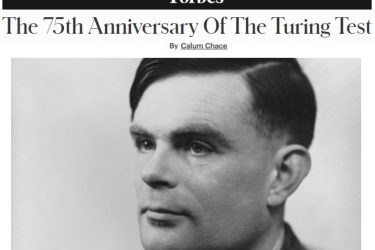Week One: ending famine, plague and war…
Clear and direct
Yuval Harari’s book “Sapiens” was a richly deserved success. Full of intriguing ideas which were often both original and convincing, its prose style is clear and direct – a pleasure to read.*

His latest book, “Homo Deus” shares these characteristics, but personally, I found the first half dragged a little, and some of the arguments and assumptions left me unconvinced. I’m glad that I persevered, however: towards the end he produces a fascinating and important suggestion about the impact of AI on future humans.
Because Harari’s writing is so crisp, you can review it largely in his own words.
And because this review is long (over 2,000 words), I’m serialising it. If you’re impatient, you can get the whole thing now by signing up for my bi-monthly(ish) emails – just hit the “Free Short Story” link to your left.
From famine, plague and war to immortality, happiness and divinity
Harari opens the book with the claim that for most of our history, homo sapiens has been preoccupied by the three great evils of famine, plague and war. These have now essentially been brought under control, and because “success breeds ambition… humanity’s next targets are likely to be immortality, happiness and divinity.” In the coming decades, Harari says, we will re-engineer humans with biology, cyborg technology and AI.
The effects will be profound: “Once technology enables us to re-engineer human minds, Homo Sapiens will disappear, human history will come to an end, and a completely new kind of process will begin, which people like you and me cannot comprehend. Many scholars try to predict how the world will look in the year 2100 or 2200. This is a waste of time.”
There is, he adds, “no need to panic, though. At least not immediately. Upgrading Sapiens will be a gradual historical process rather than a Hollywood apocalypse.”

At this point Harari indulges in a lengthy argument that we should all become vegetarians, asking “is Homo sapiens a superior life form, or just the local bully?” and concluding with the unconvincing (to me) warning that if “you want to know how super-intelligent cyborgs might treat ordinary flesh-and-blood humans [you should] start by investigating how humans treat their less intelligent animal cousins.” He doesn’t explain why super-intelligent beings would follow the same logic – or lack of logic – as us.
I also find myself uncomfortable with some of his linguistic choices, and two in particular. First, his claim that “now humankind is poised to replace natural selection with intelligent design,” seems to me to pollute an important idea by associating it with a thoroughly discredited term.
Secondly, he is (to my mind) overly keen to attach the label “religion” to pretty much any system for organising people, including humanism, liberalism, communism and so on. For instance, “it may not be wrong to call the belief in economic growth a religion, because it now purports to solve many if not most of our ethical dilemmas.” To many people, a religion with no god is an oxymoron. This habit of seeing most human activity as religious might be explained by the fact that Harari lives in Israel, a country where religious fervour infuses everyday life like smog infuses an industrialising city.
Science escapes being labelled as religion, but Harari has a curious way of thinking about it too: “Neither science nor religion cares that much about the truth, … Science is interested above all in power. It aims to acquire the power to cure diseases, fight wars and produce food.”
Humanism

A longish section of the book is given over to exploring humanism, which Harari sees as a religion that supplanted Christianity in the West. “Due to [its] emphasis on liberty, the orthodox branch of humanism is known as ‘liberal humanism’ or simply as ‘liberalism’. … During the nineteenth and twentieth centuries, as humanism gained increasing social credibility and political power, it sprouted two very different offshoots: socialist humanism, which encompassed a plethora of socialist and communist movements, and evolutionary humanism, whose most famous advocates were the Nazis.”
Having unburdened himself of all this vegetarianism and religious flavouring, Harari spends the second part of “Homo Deus” considering the future of our species, and on this terrain he recovers the nimble sure-footedness which made “Sapiens” such a great book.
Next week: Harari and the two singularities
Sapiens does have its critics, including the philosopher John Danaher, who thinks it over-rated.



